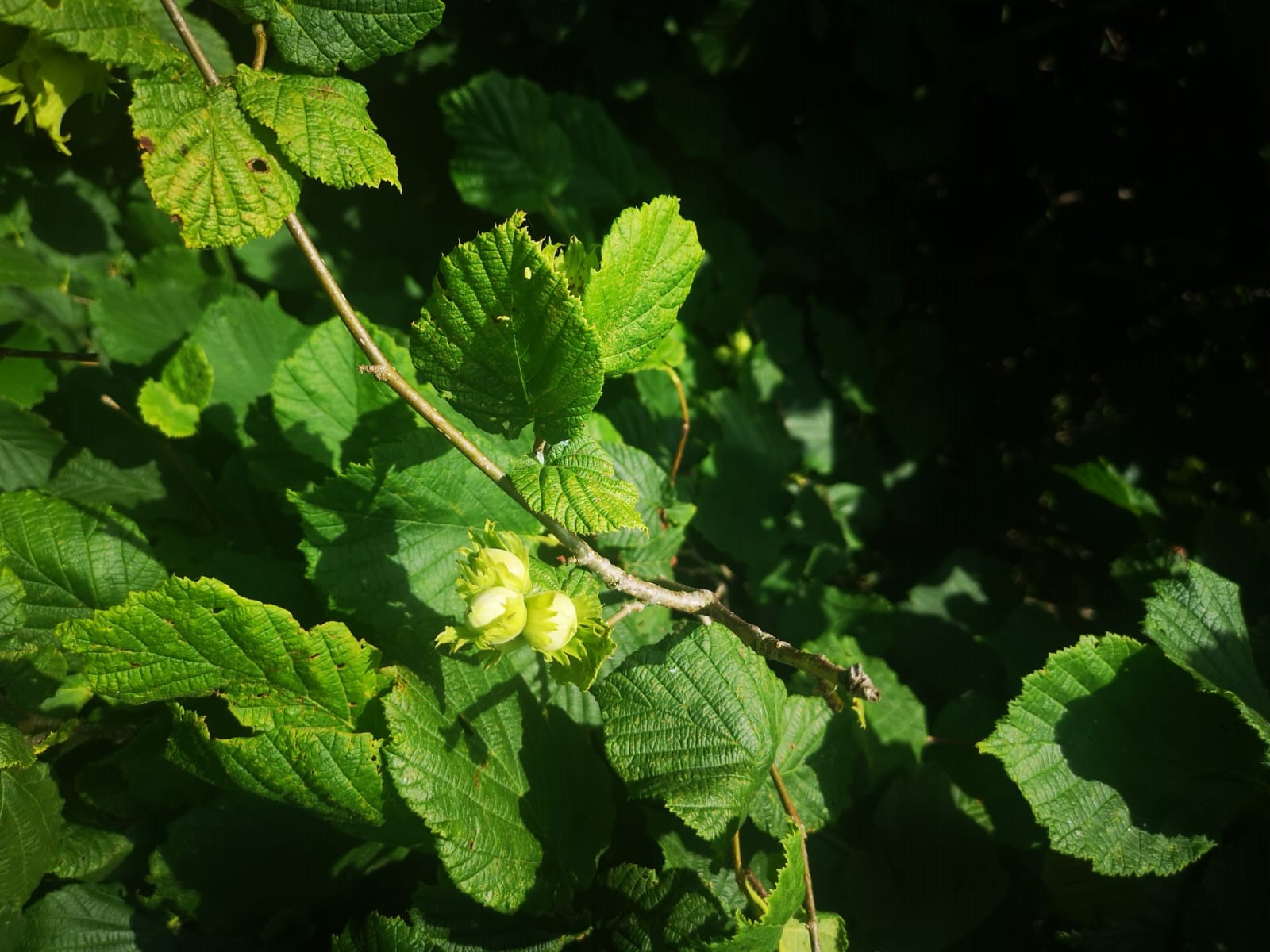Since collecting hazelnuts, dropped like gifts from heaven onto my shed roof with no effort on my part, the idea of growing nuts commercially took root and refuses to leave.
After a lifetime spent growing over-bred, puny and temperamental veg plants, which need annual planting, constant encouragement, and give up at the first hardship, I yearn for vigorous crops that are truly happy in our climate.
British hedgerows have withstood the abuses of hedge-trimmers, undermining rabbits and marauding livestock since the 18th century Inclosure Acts; they are incredibly diverse, but the dominant plant is normally hazel. Can we learn from these beautiful hedges, which also provide sanctuary for so much wildlife?
The persistence of my nutty dream finally led us to hosting a seminar last week on the potential for commercial nut growing in Devon. An Italian nut agronomist thought our climate and soil were near ideal. Peckish squirrels, and a beetle which lays its eggs in the nuts, seem to be the main threat; the investment needed for harvesting, drying and processing equipment is scary but manageable; and then there’s the need to develop a whole new area of expertise.
Altogether, it is a huge gamble. But a number of the farmers in attendance were interested, partly through a desire to be part of the solution rather than the problem with regard to climate change and wildlife loss. Charles Tebbut, a nut importer determined to get more nuts grown in the UK, estimated that the social cost savings from carbon sequestration, avoided pollution, and wildlife benefits could be quantified at £409 per hectare per year.
If a mechanism existed to pay that, it would be more than enough to get us planting. But it is a theoretical exercise; frustratingly, despite the widely acknowledged benefits of agroforestry and Michael Gove’s mantra of ‘public money for public goods’, under the current rules, planting hazel trees would actually cost us £180 per hectare every year in lost grants. A review of those rules was cancelled due to Brexit. Despite my deep scepticism of carbon off-setting, entering that murky market would be one answer.
I suspect we will still be arguing about how to reward for environmental services and charge for pollution even as the last hectare of melting permafrost belches its methane into the atmosphere. Perhaps we will just plant our hazels anyway.












Please Please grow hazelnuts. They are my absolute favourite. They are healthy great for wildlife very tasty as a snack and I can’t wait to taste your first crop
We have a corkscrew hazel in our garden. Would you like to collect them (with our empty veg boxes) for processing…?!
That would be a surprise for the Riverford recycling team! Not sure they are quite set up for processing nuts too….
Perhaps for economic viability, consider growing hazlenuts as part of a silvopasture project. Such as those agro systems known as Montado in Portugal, or Dehesa in Spain. I’d be a happy bunny to find hazlenuts in my Riverford vegbox!
Thanks Garry – Riverford have had a really positive response to this so hopefully this will prove an interesting idea for other organic growers to explore too. Although it will be a long term project, already Guy has a diverse range of native trees and hedgerows planted on the farm just for the wildlife to enjoy.
Yes, grow hazelnuts!
I would talk to this man , Guy . Best organic nuts I’ve ever tasted , grown in England . I would love it if you grew cobnuts . Then if you also sold Sharpham Park spelt flour , my joy would be complete ! Good luck & keep dreaming .
https://www.kentishcobnuts.com/
Sorry , forgot the link – https://www.kentishcobnuts.com/
https://www.kentishcobnuts.com/ Sorry , forgot the link .
By all means, grow hazelnuts! And I’ll send ours back with the boxes too!